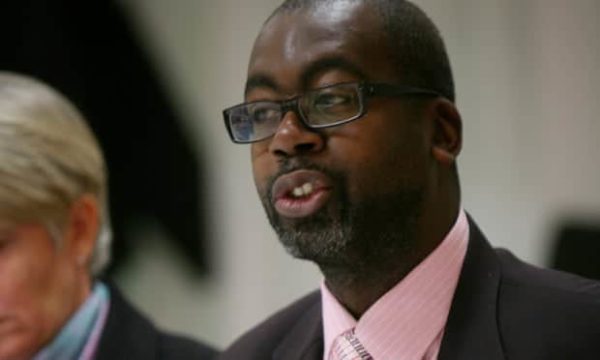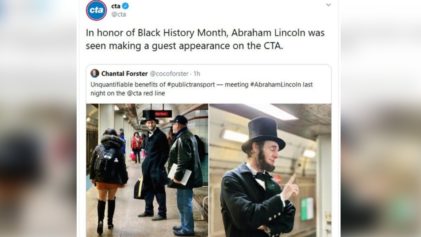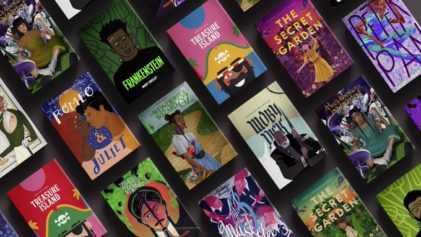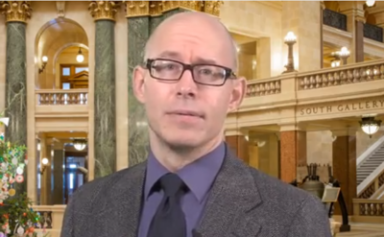Every October since 1987, folks across the U.K. have celebrated Black History Month as a way of honoring the nation’s best and brightest in politics, music, art and literature, as well as those who’ve forced Britain to take a hard look at its racist past — and present.
Things have gotten a bit sticky this year, however, as the cultural event has found itself at the center of an appropriation row, as activists decry the move by several local councils to scrap the name altogether and instead use the month to celebrate Britons of all races and ethnicities, according to The Guardian.
Many have accused the councils of trying to “dilute” what was intended to celebrate Black history and culture in Britain.

Political commentator and editor Patrick Vernon decried the rebranding of Black History Month as “shameful.” (Photo by Anna Gordon)
“I’ve been critical of Black History Month in the past, but I think it really is becoming a shared experience,” said historian and broadcaster David Oluoga. “We can have Black History Month with all people learning about it.”
“Can Black people not create things without being seen as exclusive?,” he added. “Black History Month feels to me really inclusive.”
As reported by The Guardian, the Conservative-led London borough of Hillingdon in West London was the first to do away with Black History Month in 2007 and has resisted recent attempts to have it reinstated. Instead, the borough now holds a program called “Culture Brite,” a multi-ethnic program replete with events on South Asian culture, wine tasting and folk dancing.
Wandsworth, a Conservative flagship borough in south London, has taken a similar approach, reinventing the once-exclusively Black month as “Diversity Month.”
Diversity Month is meant to be a time of “celebrating and learning together about the many and varied experiences and cultures within our borough,” according to Better, the company contracted to manage Wandsworth’s libraries. The events highlight Indian, Spanish, Polish, as well as African and Caribbean cultures.
Both boroughs are relatively diverse, with Hillingdon boasting a Black population of 21 percent and a South Asian population nearly twice that. Meanwhile, Wandsworth’s 11 percent Black, African and Caribbean population is roughly the same size as its Asian population.
Social commentator and Black History Month magazine editor Patrick Vernon called the rebranding of the events “shameful” and denounced the “cyber-racism” attack by hackers who shut down the magazine’s website Tuesday.
“Black History Month was established 30 years ago because the black experience in Britain was not recognized in the national curriculum and in mainstream society,” Vernon told the newspaper. “Unfortunately we do not live in a post-racial Britain. If we did perhaps we would not need Black History Month.”
A student union at the University of Kent in Canterbury faced a similar response after they chose to feature non-Black figures, including pop star Zayn Malik and London Mayor Sadiq Kahn, as part of its BHM celebrations. The group was also accused of excluding the school’s African-Caribbean Society from weighing in on its Black History Month planning.
Former Councilwoman Linda Bellos, who helped bring Black History Month to the U.K. over 30 years ago, argued in favor of keeping Black History Month Black.
“The involvement of Black peoples in all strands of cultural and political life is often omitted and the impression created is that there is little or no positive contribution except within music and sport,” she said. “Black men and women who’ve played a significant and positive role in the history of Britain are written out of history. This needs to be acknowledged.”


